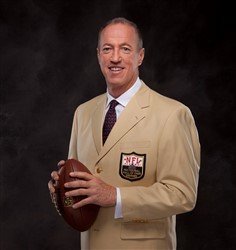Erik Brown started his career in the early 1960s collecting premiums on policies with the Metropolitan Life in Salem Massachusetts. In less than a year he moved into straight sales, focusing on life insurance for estate tax planning, and was soon recruited to the Northwestern Mutual Boston office. It’s tough to imagine with today’s inflated values, but in the early 1960s, the estate tax exemption and was sixty-thousand dollars (today it is five million dollars). The top tax rate then was seventy percent. Over time, Brown witnessed many changes in the insurance industry, some of them good, others, not so good. While great change creates opportunity, it can also create the opportunity to take advantage of customers; Brown witnessed this phenomenon first-hand. Luckily for us, Brown has spun some of his most interesting experiences into cautionary fictional tales. He writes novels that are centered around insurance frauds with the most disastrous of consequences. Murder By Accident, his latest, details a Palm Beach detective on a journey through solving a case that involves an accident that may not have been so accidental. He is also the author of Palm Beach Detective: Sunny Skies, Shady People.
Insurance Forums took some time to speak to Brown about the intrigue surrounding his books, and some of his observations on the insurance industry throughout the past few decades.
Insurance Forums: How did you get the idea to write these books?
Brown: I was angry at what had happened to the business over my career. For my first two decades in business, life insurance was mainly sold by old line mutual companies, some more efficient than others, but all solid and generally client oriented.
Then, in the late 1970s, the insurance business was changed forever. With the advent of Universal Life, companies rushed the market, panicking about all of the changes, replacing many of their existing policies. When the market stabilized again, several companies had lost money. Some invested more aggressively to catch up, most lost sales and agents, and over the next decade many fine old mutual companies either went out of business, were forced to go public to raise cash, or were taken over by other larger companies. The whole business was turned upside down, and with those changes came some fraudulent behavior. Some new policies were easy to trick up, and could really create problems for the buyer. Most companies and agents are honest, but there are companies out there that cut corners and create mayhem.
I was listening to a seminar in which at the end, a company talked about how they want to make the mortality on a policy “more competitive.” It reminded me of when universal life came out. I got a universal life quote for a million dollar policy to do some estate planning, but interest rates over the subsequent ten months dropped dramatically. I decided I needed a new illustration, because universal life is based on claims versus interest. When I called the company, the broker said, “Use the same illustration – we changed the mortality.” I responded, “I thought only God could change mortality.”
I was disturbed by these situations, and they stuck with me, so when I moved to Florida, ten years ago, I wrote an expose’ on the insurance business based on many of my experiences. Unfortunately, the main company I was working with wouldn’t let me publish due to fear of potential lawsuits.
I soon hit on a new idea: write fiction describing what might occur if abuses were carried to extreme.That was easy, because Palm Beach there are many wealthy, elderly, people who are targets for scammers. The game then was to buy life policies on elderly folks and then resell the policies for profit. They often loaned the money and promised to split the gain on resale.
For example, an eighty-five year-old friend of mine met with a seller who said they would buy an eight million dollar policy on him and sell it, then split the profits, if he would take a medical exam. He never saw the buyer again. Experiences like this one inspired me to put something down on paper.
Insurance Forums: What have been some of the most shocking experiences you’ve had during your time in the industry?
Brown: The doctoring of numbers by agents is pretty rare but surprisingly, some well-known companies still push the envelope. Recent sales illustrations with three companies using the same interest rate, premiums, and amounts of coverage, showed one company policy lasting until age 12- and with two others coverage ran out in their mid to late 80s. A closer look showed the two company policies used death rates at close to what mortality tables say is normal – 75/1000 for an 82 year-old male. The company lasting to 120 assumed 20/1000 deaths at age 82 years old. As I said earlier, “only God can change mortality.” Things may improve, people will live longer, but selling a policy which assumes death rates for 82 year olds will drop by close to 75 percent in the next twenty years? That’s a scam.












